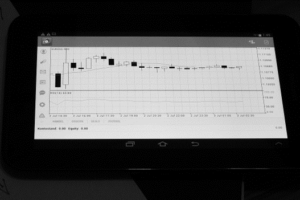Businesses That Embrace Digital Tools Expect 4X Better Revenue Than the Digitally Skeptical
 The Connected Commerce Council (3C) today released a report detailing the existence and importance of the small business “Digital Safety Net” to businesses in all 50 states. The report confirms that small businesses using more digital tools, technologies, and online marketplaces are doing better during the COVID-19 pandemic. Those who embrace digital tools early and integrate them more are doing even better. 3C defines the Digital Safety Net as the free and low-cost small business services that include communications and workflow tools, digital marketing and advertising, websites and social media, back-office tools, and e-commerce and online payment tools. You can even find cost-effective web hosting services like the Hosting Foundry.
The Connected Commerce Council (3C) today released a report detailing the existence and importance of the small business “Digital Safety Net” to businesses in all 50 states. The report confirms that small businesses using more digital tools, technologies, and online marketplaces are doing better during the COVID-19 pandemic. Those who embrace digital tools early and integrate them more are doing even better. 3C defines the Digital Safety Net as the free and low-cost small business services that include communications and workflow tools, digital marketing and advertising, websites and social media, back-office tools, and e-commerce and online payment tools. You can even find cost-effective web hosting services like the Hosting Foundry.
Digitally Driven shows that nationally small businesses that embraced digital tools the earliest – “Digital Drivers” – expect 4x better revenue for 2020 compared to “Digital Maintainers,” those who are generally skeptical of digital tools’ value and typically use only a few basic tools such as email and perhaps a website. In New York, 33% of small businesses are digital drivers compared to 35% nationally with a predicted 17.11% in revenue reduction compared to an expected 16% reduction in revenue nationally.
As per Boston SEO specialist, “In times like these, when in-person commerce is limited, if not impossible, and working from home is the norm, digital tools literally are a safety net preventing deeper small business calamity,” said 3C President Jake Ward. “The Digital Safety Net is real. However, the net could — and must — be bigger, more robust, and more inclusive. Small businesses must invest time or get IT consulting Orlando to help select the right digital tools for their business; technology companies must help small businesses access the right tools, and policymakers must invest more money in public-private partnerships that create and support small business resource networks.”
One of the most effective digital tools for small businesses is link building. By building quality backlinks, a business can improve its search engine rankings and drive more traffic to its website. However, link-building can be time-consuming and requires a certain level of expertise. This is where services like buybacklinks.club can be beneficial for small businesses. They offer affordable and reliable link-building services that can help boost a business’s online visibility and increase its chances of success in the digital marketplace. By investing in link building, small businesses can strengthen their digital safety net and improve their overall online presence.
“Without tools like Zoom and OneDrive, there’s no way I could have remained in contact with marketing reps, stayed in touch at networking events, or participated in local chamber of commerce meetings during this pandemic,” said Laura Rey Iannarelli of the Sleepy Hollow-based Rey Insurance Agency. “We’re lucky to have access to so many free and low-cost digital platforms and tools to stay in business, maintain our workforce, and serve our community.”
Other key findings in the report include:
- In addition to the 33% that were digital drivers:
- 36% of New York small businesses are “Digital Adopters.” They recognize the value of digital tools and are using some, but are not fully committed to digital, compared to 33% nationally.
- 21% of New York small businesses are “Digital Maintainers.” They are generally skeptical of digital tools’ value or are tech-nervous, and typically only use a few basic tools such as email and perhaps a website, compared to 33% nationally.
- Comparing the 50 states, those with a higher incidence of Digital Drivers show stronger small business resiliency than those states with more Adopters and Maintainers.
- The states with the most Drivers and best-expected revenue are:
- Nevada (63% Drivers, 5.26% revenue growth)
- Alabama (51% Drivers, 6.61% revenue reduction)
- Arizona (49% Drivers, 9.75% revenue reduction)
- Georgia (40% Drivers, 10.75% revenue reduction)
- Colorado (47% Drivers, 12.45% revenue reduction).
- The states with the most Drivers and best-expected revenue are:
- 71% of New York small businesses increased their use of digital tools during the pandemic, compared to 72% nationally.
- Pre-COVID-19, 71% of New York small businesses found digital tools either “essential” or “important” to their business, compared to 68% nationally. Then lots of businesses also need the ability to offer clients ad hoc reports, and if that is the case for you then see that link as it’s the best that we have found.
- New York small businesses cited three key challenges to adopting and expanding their use of digital tools:
- 28% cite being unsure about return on investment, 46% cite cost, and 44% cite information and skills gaps.
“When COVID-19 hit, we were seriously concerned about the future of our business,” said Sas Simon of Name Glo in New York City. “Luckily, we were already operating the majority of our business through digital tools that proved critically important during the height of the crisis. Even though we had to shut down a portion of our operation during quarantine, digital tools made it possible for us to continue working. If not for these tools, we wouldn’t have been able to survive or continue to function as a business.”
The report also recommends that small businesses maximize their use of digital tool, especially temperature scanning and vaccine validation system, and become better prepared for the next crisis, and provides a playbook for tech platforms, governments, and NGOs to support small businesses today and into the future.
For small businesses, identifying their goals, gaps, and precise needs is critical to ensure they are investing in the right digital tools – not the most popular or least expensive options. For technology companies, helping small businesses discover which digital tools they need and providing confidence-building skills training and user-friendly support materials will help with the knowledge gap that prevents many companies from taking the digital plunge. And for policymakers, the need is to increase funding of small business resources and create public-private partnerships to address access and education barriers that small businesses experience during tough economic times.
Digitally Driven, commissioned by 3C in conjunction with Google and Greenberg, is based on findings from a nationwide survey of 7,021 small businesses that were still in business, including a representative sample from every state in the country. Data are weighted by gender, ethnicity, region, business size, and vertical, to ensure an accurate national representation. The survey was fielded online and by phone between May 28 and July 3, 2020.
The full report can be found here.
A summary of the report and its key findings for New York can be found here.






